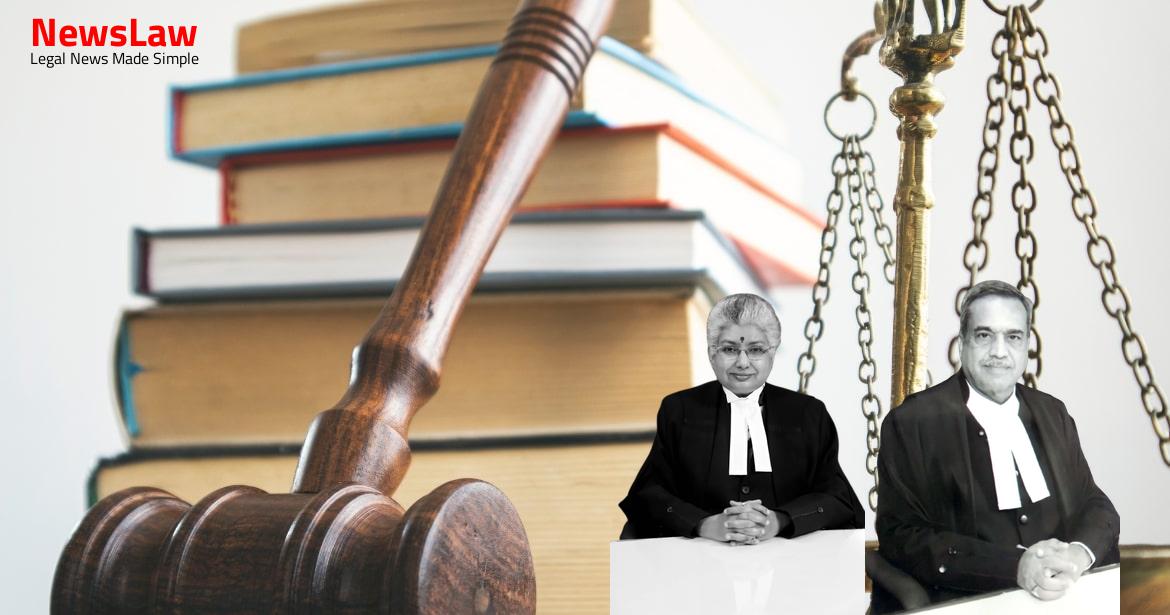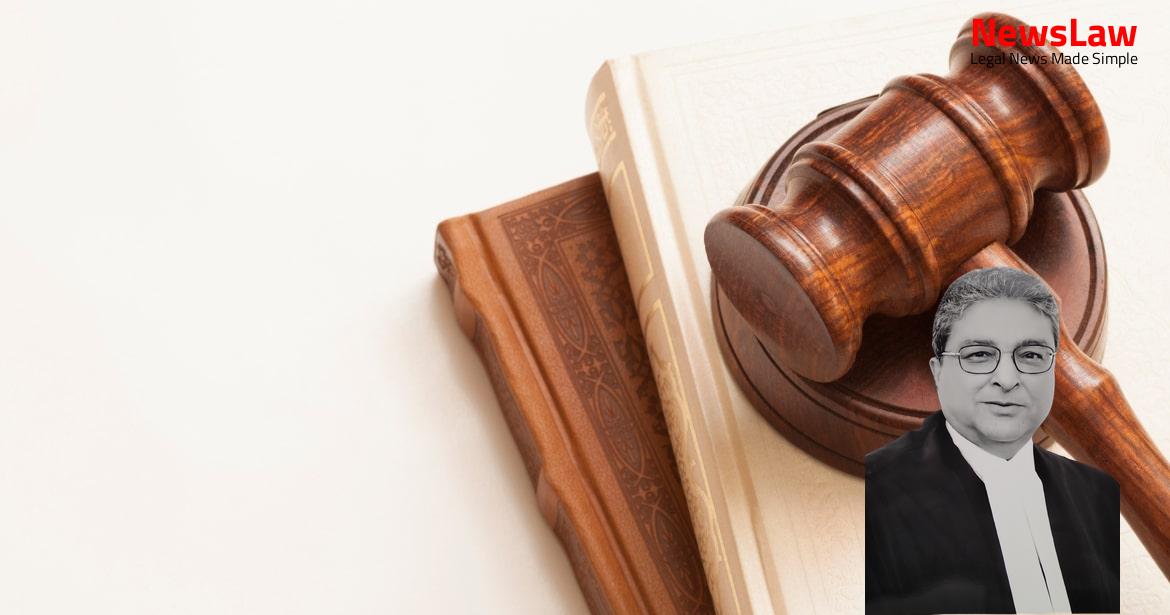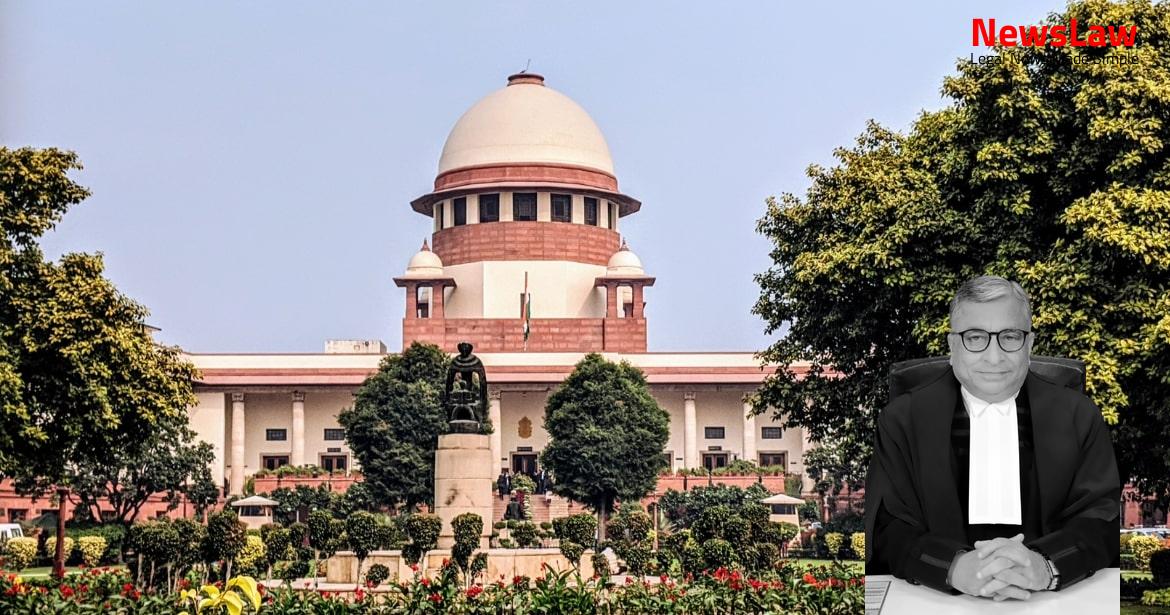The legal system’s intricate web of jurisdiction and court orders has come under scrutiny in a recent case, showcasing the importance of upholding constitutional principles. Through a detailed legal analysis, the court has set a precedent emphasizing predictability and adherence to the law in the judicial system. The case underscores the significance of respecting court orders and the rule of law to maintain the credibility of the judicial institution.
Facts
- The appellant challenges the order dated 20 May 2022, passed by the NGT in I.A. Nos. 117 and 118 of 2022 in O.A. No. 361 of 2022, wherein the application seeking vacation of a stay imposed on construction was rejected.
- The appellant was running a resort at Rushikonda Hill near Visakhapatnam and had filed a writ petition before the High Court on 8 December 2021.
- An Experts Committee found no violation in the construction carried out by the appellant initially.
- NGT appointed another Experts Committee on 6 May 2022, despite the initial committee’s findings.
- The appellant demolished the existing resort and is reconstructing it with additional facilities after obtaining necessary permissions.
- The NGT directed no further construction until the new Experts Committee’s report without waiting for the previous committee’s findings.
- A writ petition challenging the construction was filed in the High Court of Andhra Pradesh at Amaravati.
- The report of the second Experts Committee is awaited, as of present proceedings.
- The NGT had previously appointed an Experts Committee which submitted a report on 29 March 2022.
- The construction activities and other allied activities related to the project must strictly adhere to the permission granted by the Ministry of Environment, Forest and Climate Change.
- All activities must also comply with the existing master plan in place.
Also Read: Presumption of Genuine Endorsements in Cheque Case
Arguments
- Construction is ongoing in violation of High Court order
- NGT refused to vacate interim order conflicting with High Court order
- NGT is subordinate to High Court in territorial jurisdiction
- Proceedings before NGT not sustainable in law
- Appellant accused of breaching High Court order
- NGT should not have entertained the same cause of action when High Court was already involved
Also Read: Medical Negligence and Compensation: A Landmark Decision
Analysis
- The orders passed by the Court are considered the law of the land as per Article 141 of the Constitution of India.
- Predictability and certainty are essential in judicial jurisprudence for effective functioning of the judicial system.
- Courts command adherence to the Constitution and the rule of law.
- A contempt petition has been filed before the High Court for violation.
- Government departments are not exempt from consequences of disobeying Court orders.
- Violation of constitutional principles by those who establish the law is unacceptable.
- Judgments from cases such as East India Commercial Companies Ltd. and Official Liquidator v. Dayanand emphasize the importance of upholding constitutional principles.
- Reference made to the judgment of the Constitution Bench in the case of L. Chandra Kumar v. Union of India and Others.
- No Court, Tribunal, or authority can ignore the law set by the Supreme Court for smooth functioning and respect towards the law.
- Law declared by higher court in the State is binding on authorities and tribunals
- Authorities and tribunals under the superintendence of higher court cannot ignore its law
- Violation of court orders would be considered disobedience and could lead to legal action
- Tribunals are subordinate to the High Court in terms of territorial jurisdiction
- Disrespect to constitutional ethos and breach of discipline impacts credibility of judicial institution and encourages chance litigation
- The NGT has constituted an Experts Committee for the case.
- The High Court can consider the report of the Experts Committee or appoint another Committee as deemed fit.
- It was deemed inappropriate for the NGT to continue proceedings when the High Court was also dealing with the matter.
- Conflicting orders by NGT and the High Court create confusion for authorities on which order to follow.
- Orders by constitutional courts take precedence over those by statutory tribunals.
- Continuation of NGT proceedings for the same matter as before the High Court is not in the interest of justice.
Also Read: Remand of Writ Petition for Restoration and Decision on Merits
Decision
- All appeals have been disposed of.
- The parties are directed to move the High Court for appropriate orders.
- The respondent can file an application for impleadment before the High Court.
- Construction will only be permitted on the previously existing demolished area and the flat area until a fresh call is made by the High Court.
- The appellant will not claim any equities from the permitted construction.
- No opinion has been expressed on the merits of the matter.
- Pending applications will be disposed of.
Case Title: THE STATE OF ANDHRA PRADESH Vs. RAGHU RAMAKRISHNA RAJU KANUMURU (M.P) (2022 INSC 633)
Case Number: C.A. No.-004522-004524 / 2022



